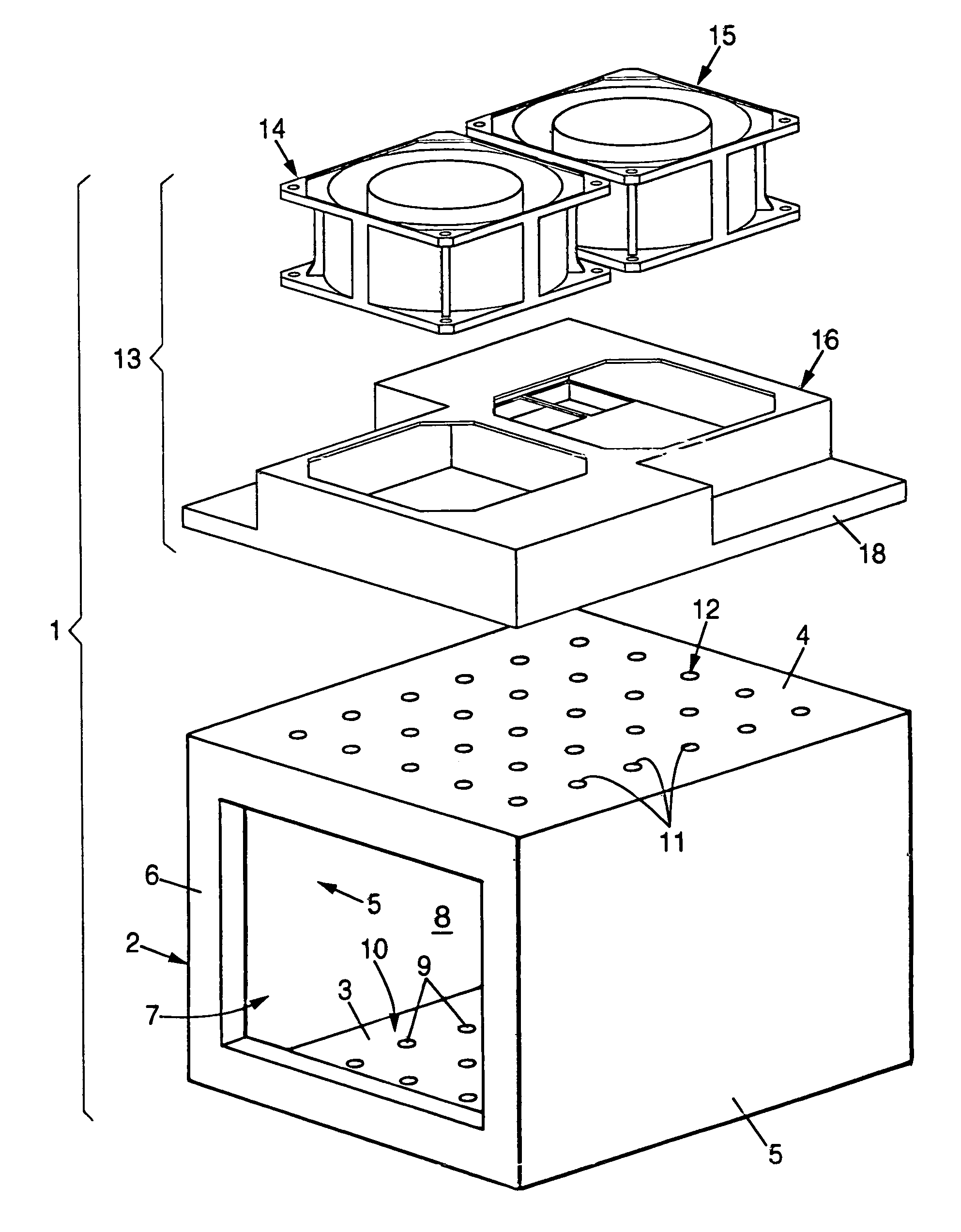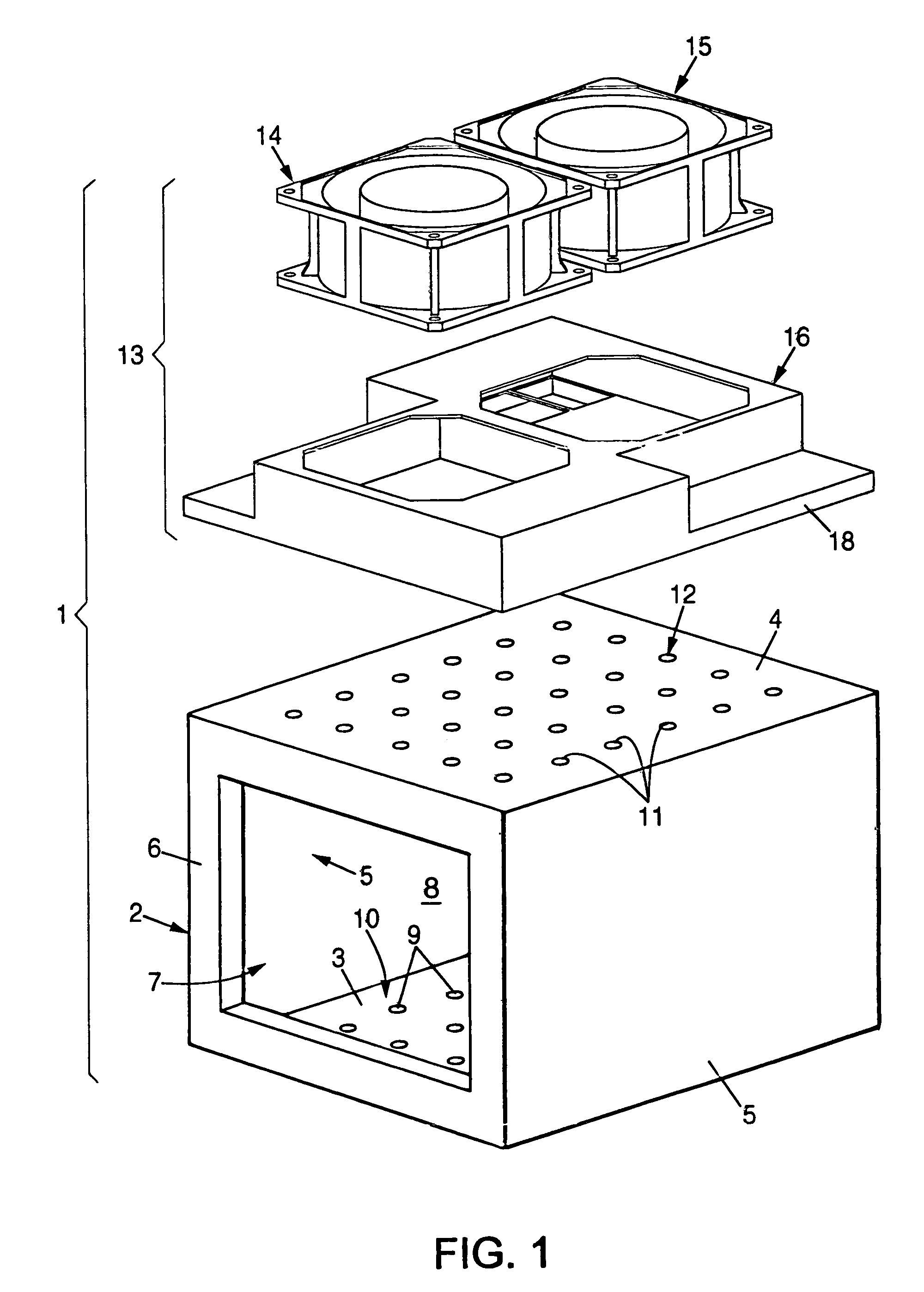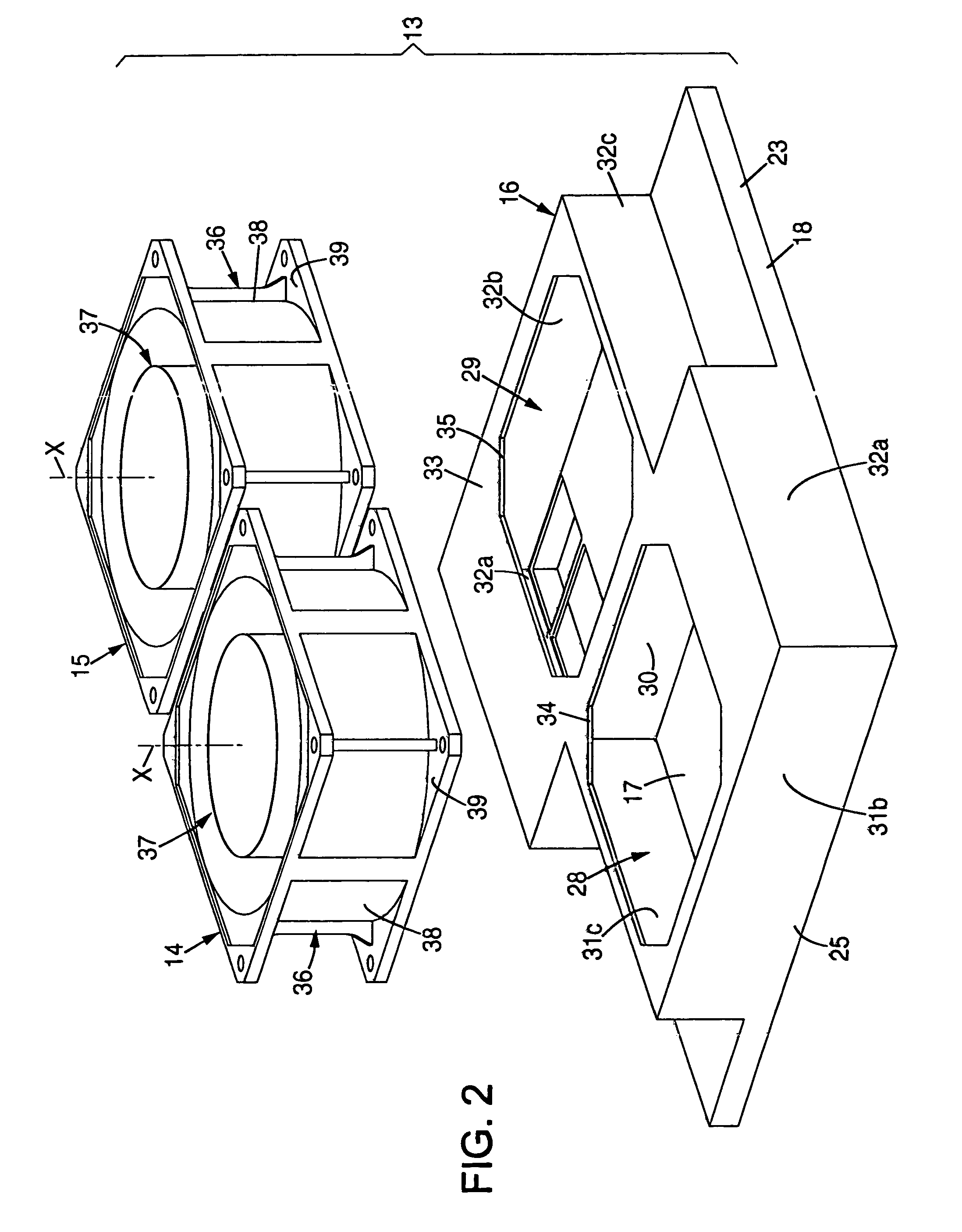Ventilation system for electrical of electronic equipment
a technology of electronic equipment and ventilation system, which is applied in the direction of cooling/ventilation/heating modifications, electrical apparatus casings/cabinets/drawers, lighting and heating apparatus, etc., can solve problems such as blower failure, air flow obstruction, and overheating of circuits, so as to achieve maximum flow rate
- Summary
- Abstract
- Description
- Claims
- Application Information
AI Technical Summary
Benefits of technology
Problems solved by technology
Method used
Image
Examples
first embodiment
[0059]In a first embodiment, described with reference to FIGS. 3 to 5, the chest 16 has exactly two cavities 20 and 21 each in the shape of a comb, the two combs being interleaved one in the other and being separated by a continuous partition 22 extending along a crenellated pattern.
[0060]If the cavities 20 and 21 together cover the entire area of the air outlet 12, interleaving them enables each to take air from practically all of that area.
[0061]As a result, in the event of one of the air circuits, the primary circuit or secondary circuit, being inoperative due to a breakdown affecting one of the fans 14 and 15, the flow of air through the circuit that remains operational remains substantially uniform over the entire air outlet 12.
[0062]As a result, given the shape of each of the cavities 20 and 21, the suction caused by the fans 14 and 15 generates parallel upwardly-traveling sheets of air inside the enclosure 8 which penetrate into the perforations 9 and subsequently follow the ...
second embodiment
[0069]In a second embodiment, shown in FIGS. 6 to 9, the chest 16 has a plurality of primary cavities 20a, 20b, 20c, and 20d and a plurality of secondary cavities 21a, 21b, 21c, and 21d, in alternation, and separated in pairs by a plurality of parallel partitions 22a to 22g (which partitions are linear in the example shown) interconnecting two opposite edges 25 and 26 of the skirt 18.
[0070]A primary opening 43a, 43b, 43c, or 43d is formed through the wall 17 in the vicinity of one of the sides 23 for each of the primary cavities 20a, 20b, 20c, or 20d, and a secondary opening 44a, 44b, 44c, or 44d is formed in the vicinity of the opposite side for each of the secondary openings 21a, 21b, 21c, or 21d.
[0071]As a result, the primary cavities 20a to 20d are all in fluid flow communication with the primary chamber 28, while the secondary cavities 21a to 21d are all in fluid flow communication with the secondary chamber 29.
[0072]Given the symmetry and the uniformity of this configuration,...
PUM
 Login to View More
Login to View More Abstract
Description
Claims
Application Information
 Login to View More
Login to View More - R&D
- Intellectual Property
- Life Sciences
- Materials
- Tech Scout
- Unparalleled Data Quality
- Higher Quality Content
- 60% Fewer Hallucinations
Browse by: Latest US Patents, China's latest patents, Technical Efficacy Thesaurus, Application Domain, Technology Topic, Popular Technical Reports.
© 2025 PatSnap. All rights reserved.Legal|Privacy policy|Modern Slavery Act Transparency Statement|Sitemap|About US| Contact US: help@patsnap.com



